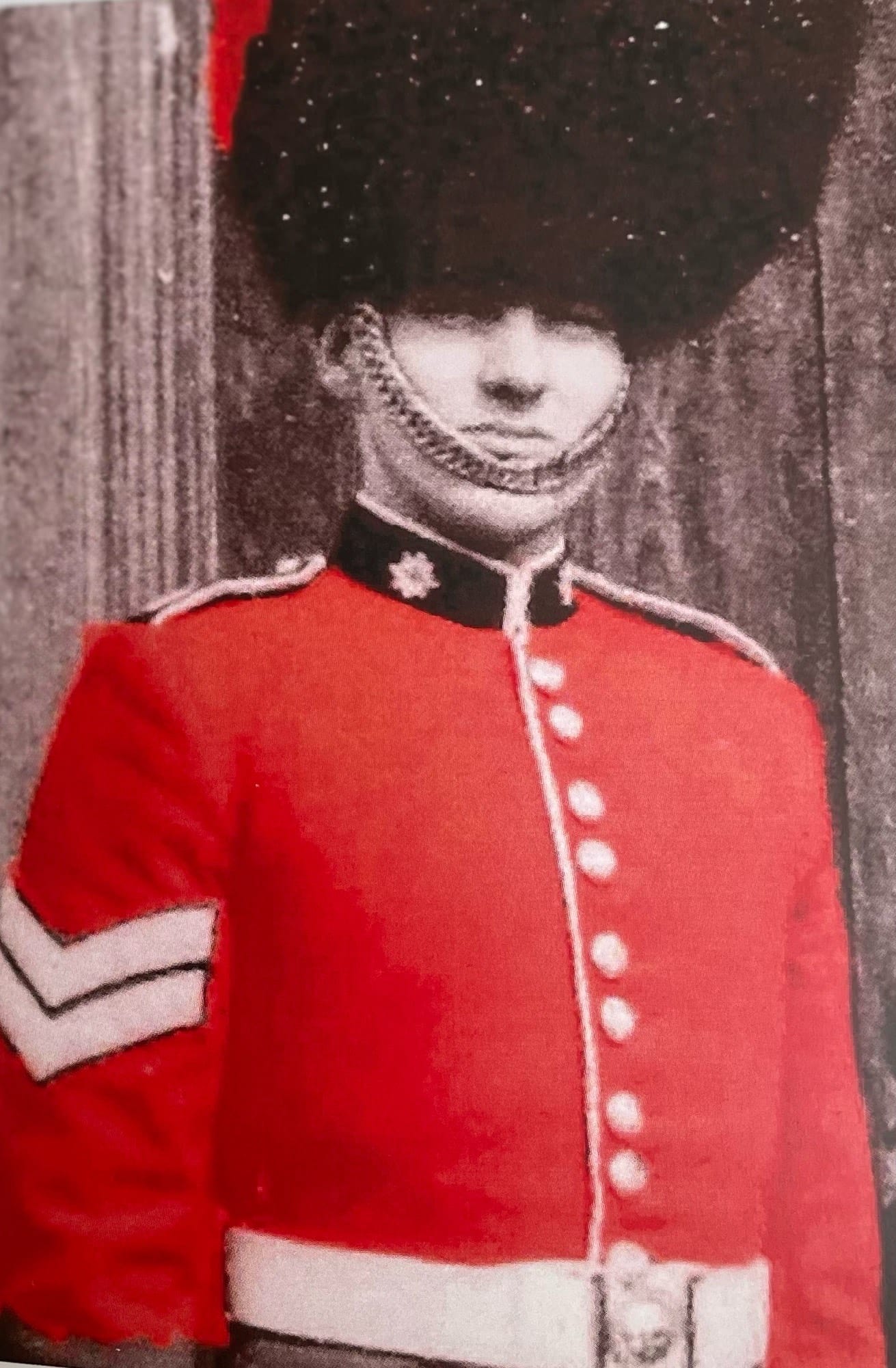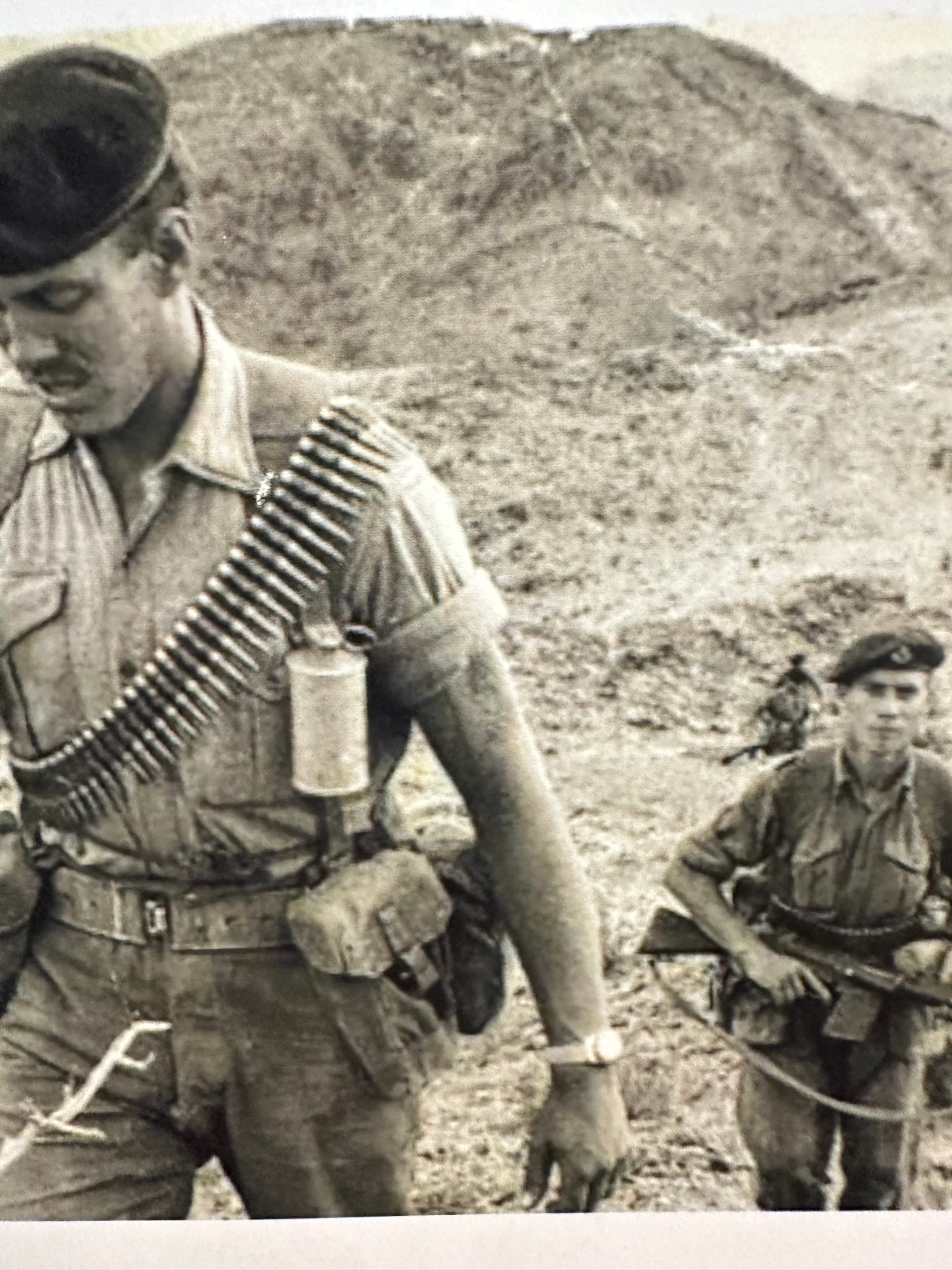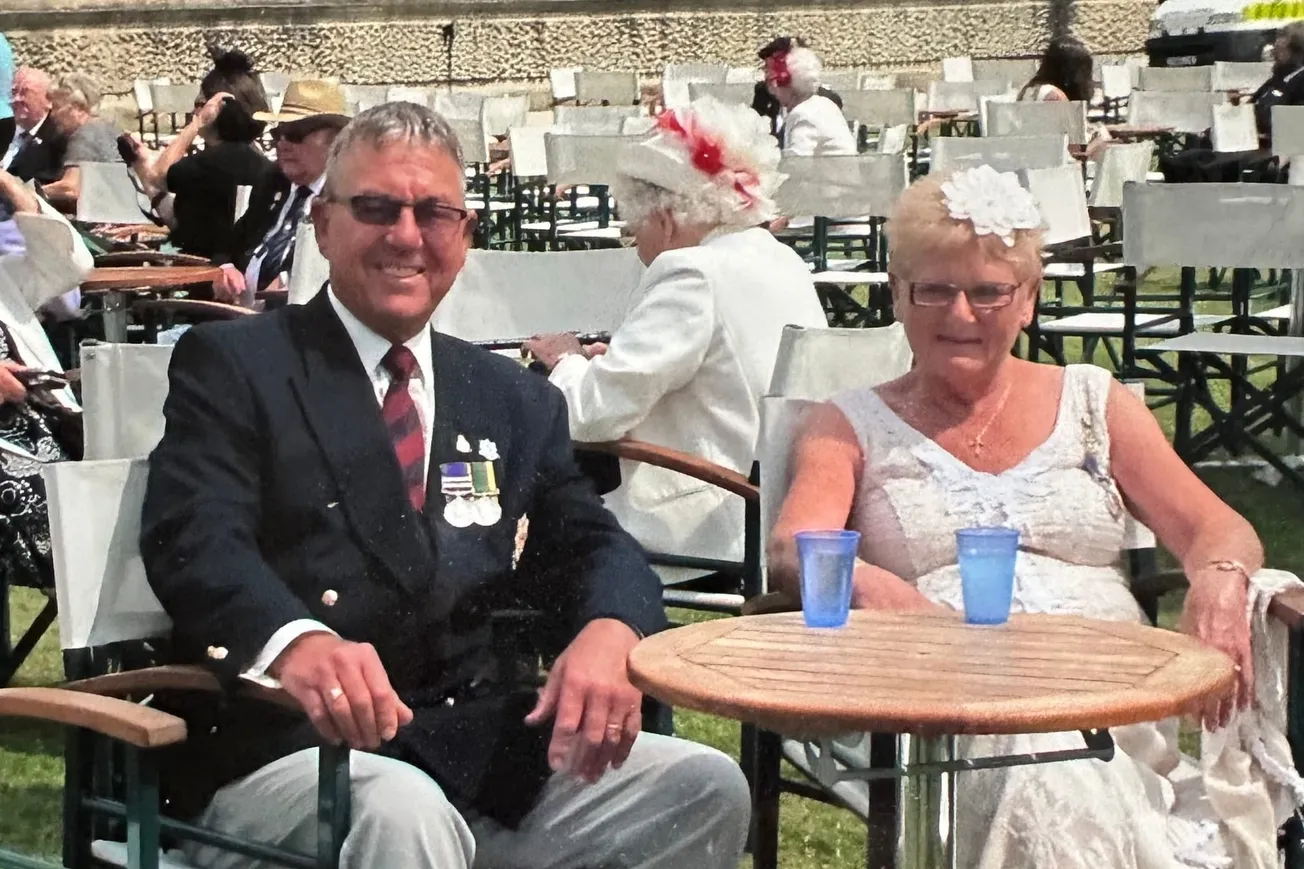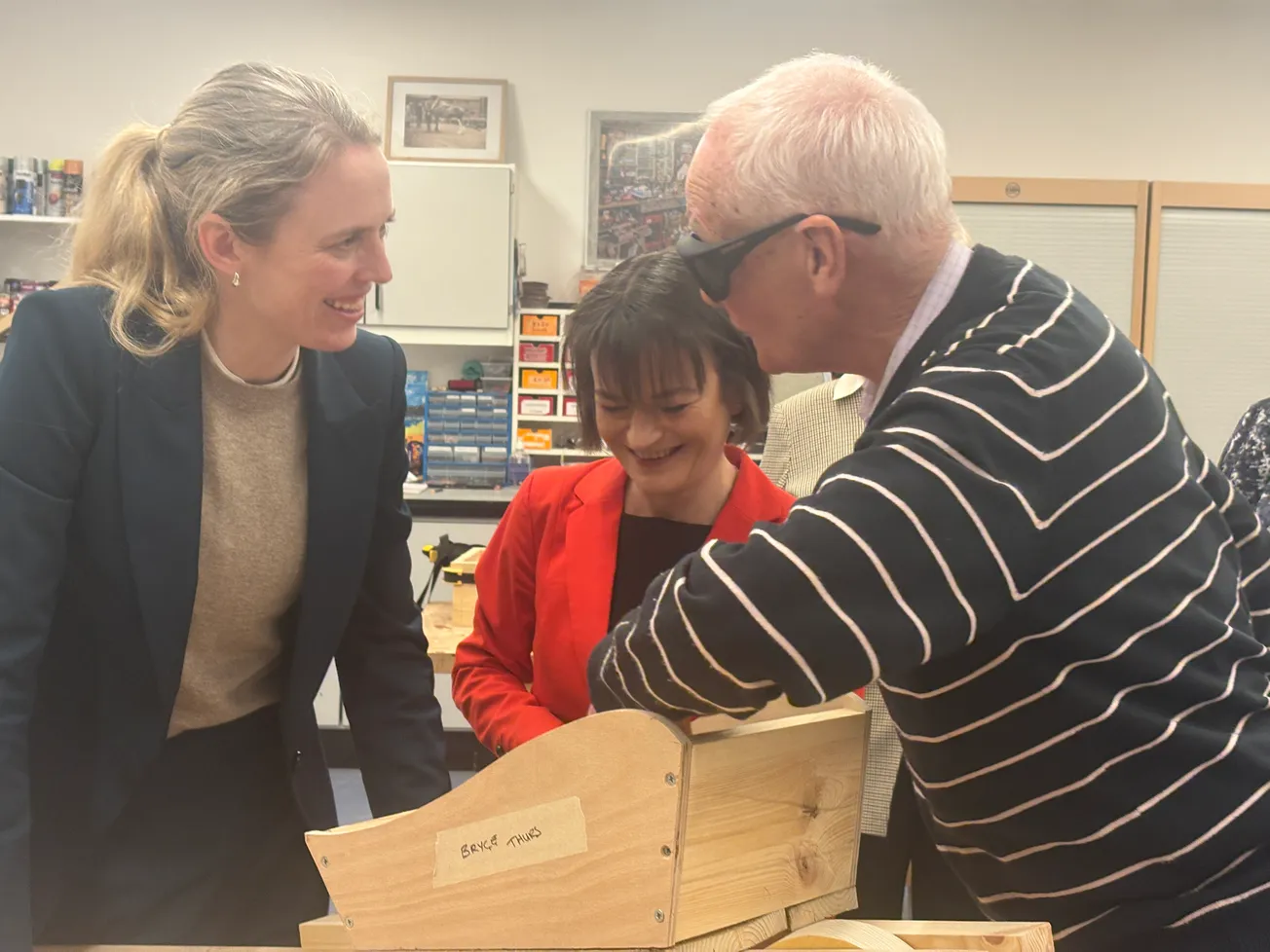A British Army veteran has revealed how he’s lived for more than 60 years with shrapnel embedded in his brain — after surviving a brutal ambush during active service on the Yemen border in the 1960s.
Colin, now 82, was just 21 when his unit came under heavy fire in the middle of the night, high in the remote, freezing mountains on the Yemen border. A deadly explosion sent metal fragments deep into the back of his head, where they remain to this day — buried in his cerebellum, the part of the brain that controls balance and coordination.
Doctors told him the fragments were too dangerous to remove. One wrong move could leave him paralysed or in a vegetative state. So they left them in.
“The shrapnel’s still there, but so am I,” Colin said. “You’ve got to keep going.”
Colin joined the Brigade of Guards in 1962 and began performing ceremonial duties at Buckingham Palace, including standing guard on his 21st birthday. But everything changed when his battalion was deployed to the Middle East.

Stationed near the Yemen border, Colin’s company was tasked with intercepting smuggled weapons crossing into British-held territory. Operating 7,500 feet above sea level, they built makeshift walls from rocks and braced for attack in harsh, volcanic terrain where trenches couldn’t be dug.
“At 2 am, they came for us — gunfire from all sides. We were completely surrounded. There was no cover, no escape.”

The explosion that hit Colin ripped through his section. He was airlifted to a military hospital, then transferred back to England for treatment. But the prognosis was grim: the shrapnel had fragmented and embedded in the most sensitive area of his brain. Surgery was too risky.
“They told me it would do more damage taking it out. So, we just had to leave it there.”
Despite tremors, balance problems and memory loss, Colin kept the injury a secret — even while working as a forensics officer in the police for more than 30 years, helping investigate murders and major crimes.
“There was a stigma back then. You didn’t talk about things like brain injuries. I didn’t want to be seen as less capable.”
Only recently, after years of worsening symptoms, Colin was diagnosed with ataxia — a rare neurological condition linked to his original brain injury. The symptoms had been there all along.
Now retired and a full-time carer for his wife, who lives with dementia, Colin, with the support of The Brain Charity, wants to raise awareness of neurological conditions like his to reduce stigma and educate others.
Amy Trego, Head of Fundraising & Communications at The Brain Charity, said:
“Colin’s story is a powerful reminder of how hidden brain injuries can shape lives in silence for decades. His bravery – both in service and in speaking out now – helps shine a light on the thousands living with undiagnosed or misunderstood neurological conditions.
At The Brain Charity, we see first-hand how important it is to raise awareness, challenge stigma, and make sure no one feels they have to face these conditions alone.”
The Brain Charity is a national charity that provides support and information to people with neurological conditions and their families. The charity offers a range of services, including information and advice, counselling, and support groups.






